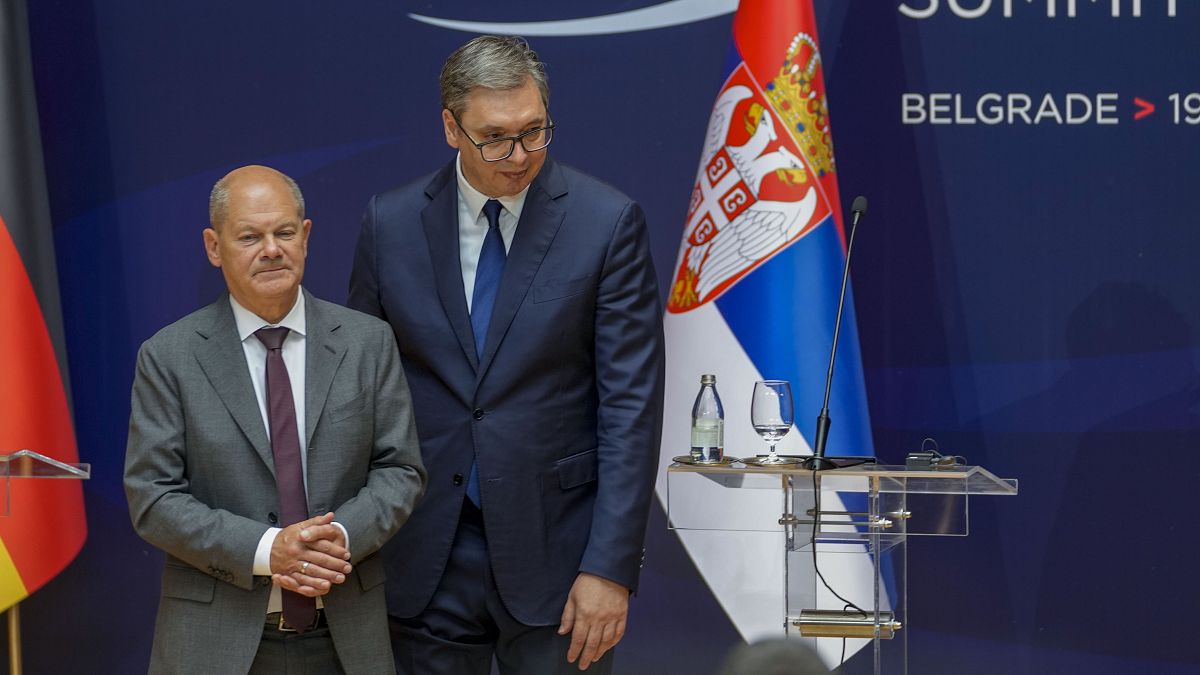This weekend, Serbia is expected to see mass protests in response to the new EU and Serbian lithium mining deal signed a few weeks ago. The deal, aimed at reducing the EU’s dependency on China, has sparked widespread opposition among the Serbian population, with more than half rejecting plans to mine in the Jadar Valley. This issue raises concerns about history repeating itself in Serbia, as mass protests against lithium mining brought much of the country to a standstill in 2021 before plans were withdrawn. Now, with the Serbian Constitutional Court overturning this decision and the government signing the deal with the EU, tensions are flaring once again.
Germany’s involvement in the lithium mining deal is linked to its ambitions to build 15 million electric cars by 2030 in order to meet EU climate change promises. As China produced the most electric cars in 2023, experts worry that the cheap cost of these vehicles may impact the German automobile industry, which is a major part of the country’s economy. In a bid to reduce dependency on China, German Chancellor Olaf Scholz paid a surprise visit to Belgrade to sign the deal with Serbian President Aleksander Vucic. However, the controversial nature of the plans, both environmentally and politically, has stirred up opposition within Serbia.
The plans to extract lithium in the Jadar Valley not only raise concerns about the environmental impact but also about the political motivations behind the deal. While lithium can be found in other countries within the EU, such as Austria, Czech, and Portugal, the EU seems to be focused on keeping the dirty work outside of its own backyard. This has led to the signing of the deal with Serbia, despite the opposition from more than half of the Serbian population. With protests planned for this weekend, tensions are running high as the Serbian government moves forward with plans to extract lithium by 2028, in partnership with the EU.
The history of mass protests against lithium mining in Serbia dates back to 2021 when plans to open the Rio Tinto mine were met with widespread opposition. This resulted in protests that brought much of Belgrade and other parts of Serbia to a standstill, eventually leading to the withdrawal of the plans. However, the recent decision by the Serbian Constitutional Court to overturn this ruling has reignited the controversy surrounding lithium mining in the country. The upcoming protests are expected to be a continuation of the resistance against these plans, with concerns about the environmental impact and political motivations driving opposition.
As tensions rise in Serbia over the new EU and Serbian lithium mining deal, the question of history repeating itself looms large. The controversy surrounding the plans to extract lithium in the Jadar Valley has brought widespread opposition from the Serbian population, who are planning mass protests this weekend. With concerns about the environmental impact of the mining activities and the political motivations behind the deal, tensions are running high in the country. Despite the opposition, the Serbian government has signed the deal with the EU, aiming to begin extracting lithium by 2028. The outcome of this conflict remains uncertain, as both sides stand firm in their positions.











